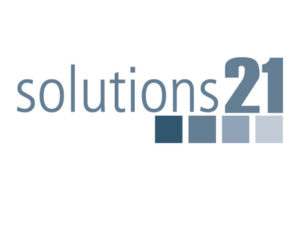Leaders are trying to make sense of three trends creating a massive shift in the workforce:
– Generational transition;
– Lower demand for traditional careers; and
– The ease with which people can find roles that fit their life goals.
Amid these trends, $30 trillion will change hands in the U.S. alone in the next decade-plus as retiring Baby Boomers hand the reins to their next leaders.
The workforce is splitting i nto “pools” that prioritize flexibility, meaningful work, and well-being support over traditional career drivers like career advancement and compensation. Combined with the ease of changing jobs – signing up to drive for a rideshare company can take minutes – many workers are looking to find ways to meet their financial needs while living a life by design, addressing issues important to them, having the flexibility to care for children or family members, or leveraging their savings to exit the workforce entirely.
nto “pools” that prioritize flexibility, meaningful work, and well-being support over traditional career drivers like career advancement and compensation. Combined with the ease of changing jobs – signing up to drive for a rideshare company can take minutes – many workers are looking to find ways to meet their financial needs while living a life by design, addressing issues important to them, having the flexibility to care for children or family members, or leveraging their savings to exit the workforce entirely.
Those “traditionals” who are left, particularly Millennial-aged workers expected to step into the soon-to-be-vacated executive suite, need rapid development to prepare for those higher-level roles. While leadership development and coaching support remain best practices, several tools in the toolbox have little cost but dramatic impacts on employee growth.
The Career Chessboard
Prior generations saw career advancement as vertical and linear. Concepts like “up or out” drove a culture where employees either got promoted or stagnated. Taking a step back or a lateral move was career-ending.
Today, Millennial and Gen Z workers prize development and advancement and will quickly change organizations if they don’t see a way to achieve those goals at their current employer. Employees will see these limited stepping stones as too narrow if the only growth opportunities include promotions and structured development programs.
As a result, organizations should look at career development like a chessboard where the employee is the queen. That person can advance, move backward, diagonally, or in any other direction to get the needed experience. Even more importantly, development and advancement don’t need to be limited to a job change – participation in special projects or strategic initiatives, engaging in a cohort-based leadership program, or even opportunities to interact with peers from other organizations can be some of the most impactful experiences for these employees. Your investment in creative career progress pays off in lower turnover and higher skill.
Leverage Your External Engagement
Perhaps the most overlooked opportunities for career skill development are in nonprofits, industry trade groups, and membership organizations. In almost all cases, organizational leaders serve crucial roles in advancing their communities and industries. Leveraging these crucial connections can create leadership learning opportunities in lower-stakes environments that can help next leaders build skills that transfer directly back into the workplace.
There are three specific areas executive leaders can mine for low- or no-cost Career Chessboard opportunities:
– Nonprofit boards – Nonprofit organizations often seek passionate board members willing to provide expertise to advance their mission. Ask the organizations on which you – or your fellow executives – serve to understand the potential opportunities to place your next leaders into those positions. Further, this can connect to some organizations’ Corporate Social Responsibility initiatives as a demonstrated way of connecting to the community.
– Industry trade groups – Industry trade groups are constantly seeking ways to create greater organizational engagement, and most have developed next-generation programs to foster connections between peers. Placing key talent into those programs – or advocating for like programs if they don’t exist – accelerates their knowledge of the industry and its key players.
– Membership organizations – Similar to trade groups, membership organizations provide opportunities to advance the mission, network with like-minded individuals and be a part of leading crucial strategic initiatives. Exploring programs within the organizations where you are already a member is likely to uncover efforts that would be valuable Career Chessboard opportunities.
No replacement exists for career development best practices, such as investments in leadership and coaching. Yet, there are many opportunities leaders might be missing to elevate their next leaders and accelerate their growth. Creative thinking about external opportunities can pay huge dividends at a shockingly low investment.
To learn more about how Solutions21 can help prepare your organization’s next generation of leaders, visit https://solutions21.com.
To download Solutions21’s Career Chessboard white paper, visit https://solutions21.com/research-career-chessboard/.